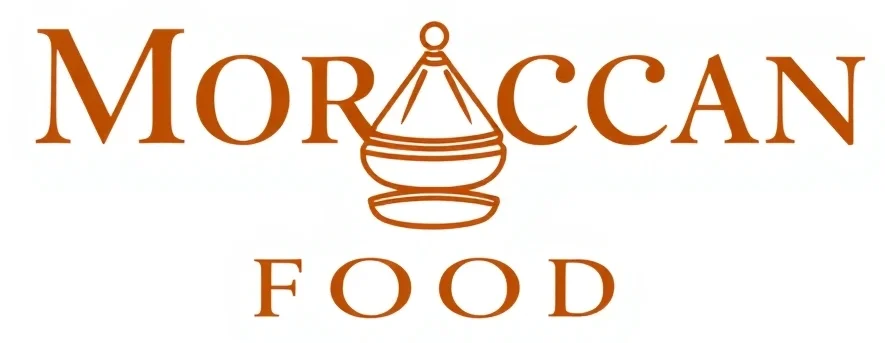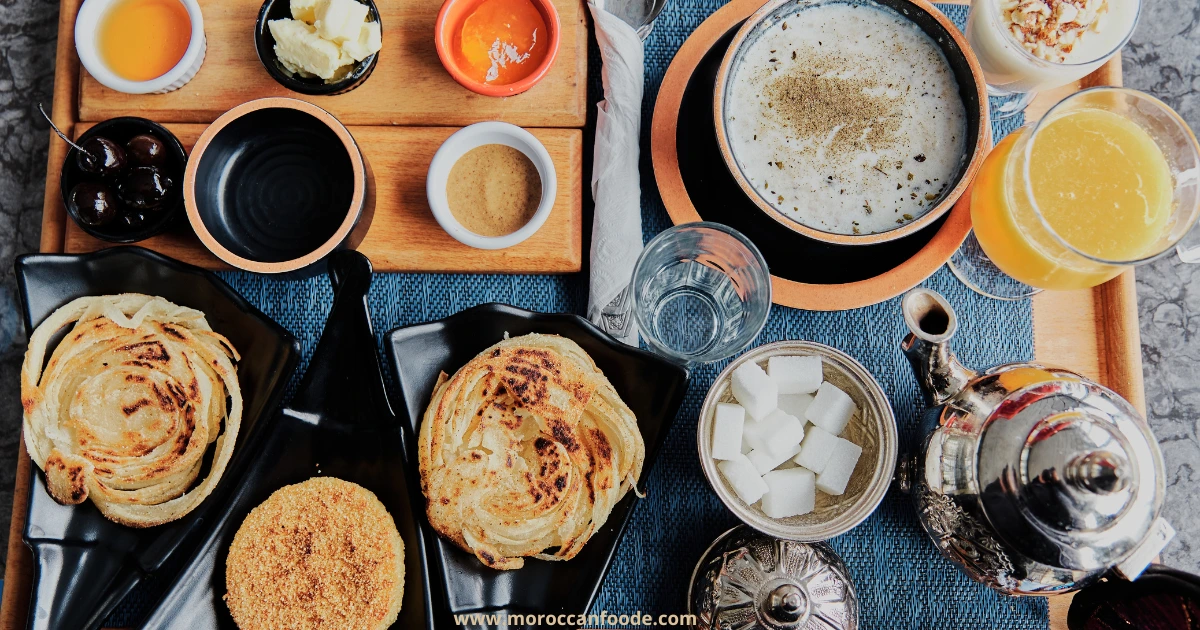Traditional Moroccan Breakfast: A Culinary Journey
Table of Contents
Imagine walking through Morocco’s lively streets. You’re surrounded by the smells of fresh bread, sweet pastries, and spices. Moroccan breakfast is a journey through tasty dishes, blending African, Arab, and Mediterranean flavors.
Try new breakfast ideas like msemen with honey and goat cheese. Or kefta tagine with meatballs, eggs, and tomatoes. These dishes show the rich flavors of Moroccan cuisine.
Breakfast in Morocco is more than just a meal. It’s a time to come together with family and friends. It’s about enjoying the rich tastes and smells of traditional dishes.
Whether you’re making new recipes or visiting local markets and cafes, Moroccan breakfast is unforgettable. It’s a unique experience that you’ll always remember.
Key Takeaways
- Traditional Moroccan, breakfast is a culinary journey that takes you through a variety of delicious dishes.
- Moroccan cuisine is a unique blend of African, Arab, and Mediterranean influences.
- Breakfast is an essential meal in Moroccan culture, stressing communal dining and shared meals.
- Moroccan, breakfast dishes are rich in fiber, protein, and antioxidants, making them a healthy and balanced meal option.
- Modern trends in Moroccan breakfast fusion have seen a 25% increase in innovative ingredient utilization, appealing to contemporary preferences.
- The significance of breakfast in Moroccan culture is evident, with 70% of surveyed households describing it as the most important meal of the day.
- Traditional Moroccan breakfast provides a high nutritional value, with common fruits serving 50-80% of daily recommended Vitamin C intake.
Discover authentic Moroccan cooking tools and spices on Amazon. From tagine pots to ras el hanout, find everything you need to bring Moroccan flavors to your kitchen! Buy here
Understanding the Rich Heritage of Moroccan Breakfast
Moroccan breakfast shows the country’s rich cultural mix. Each region adds its own twist to traditional dishes. When looking at healthy breakfast recipes, it’s key to know the local ingredients and cooking ways. This makes Moroccan food stand out.
A typical Moroccan, breakfast includes honey, olive oil, jam, olives, cheese, and eggs. It also comes with a refreshing cup of mint tea. The mix of flavors and smells in Moroccan food is unmatched. It’s why many people choose it for new and exciting healthy breakfast recipes.
Across Morocco, different areas have their own breakfast styles. This is due to local ingredients, cultural practices, and history. For example, coastal areas often have fish in their dishes. Inland areas prefer meats like lamb and beef. This variety makes Moroccan cuisine rich and exciting, with many delicious breakfast options for everyone.
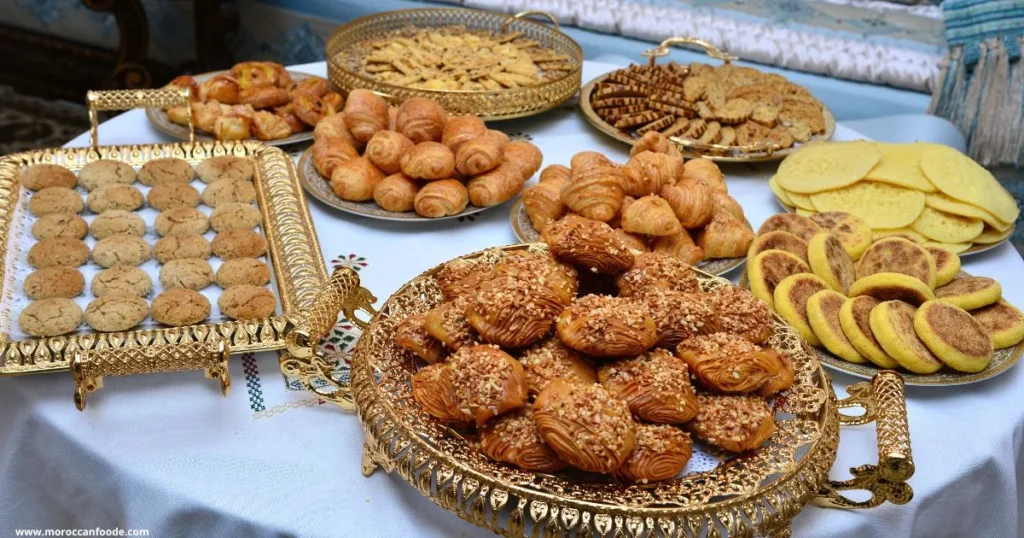
The Cultural Significance of Morning Meals in Morocco
Moroccan breakfast is more than just a meal. It’s a cultural tradition that shows the country’s heritage. The way meals are prepared and shared is deeply rooted in tradition. Knowing the cultural importance of morning meals in Morocco helps us appreciate the true value of Moroccan food.
Essential Ingredients in a Moroccan Morning Spread
Moroccan cuisine brings a unique mix of flavors to breakfast. A traditional north african breakfast has many parts. These include hot drinks, fresh orange juice, olives, dates, fresh cheese, eggs, yoghurts, virgin olive oil, honey, butter, and different types of bread.
Popular items in a Moroccan, breakfast are lamb, chicken, and fish. They’re often served with tomatoes, onions, and courgettes. Spices like cumin, paprika, and cinnamon give these dishes a special taste. This mix makes a Moroccan breakfast truly unique.
A Moroccan breakfast also features various breads and pancakes. You’ll find khobz, beghrir, and msemen on the table. These are served with spreads and condiments like olive oil, honey, and argan oil. These ingredients make a north african breakfast special.
| Ingredient | Description |
|---|---|
| Khobz | Traditional Moroccan bread |
| Beghrir | Thousand-hole pancake |
| Msemen | Flaky square flatbread |
Classic Moroccan Breakfast Staples You Need to Try
Traditional Moroccan, breakfasts feature several must-try dishes. These reflect the country’s rich culinary heritage. They often include honey, cheese, and olive oil. A typical breakfast combines ingredients like khobz, beghrir, msemen, and mint tea.
Popular breakfast ideas include khobz with olive oil, jben, and honey. Beghrir with butter and honey is also a favorite. Msemen, known for its flaky texture, is often enjoyed with butter and honey. These dishes are not just tasty but also offer a peek into Morocco’s cultural heritage.
Here are some essential ingredients to try with your Moroccan breakfast:
- Khobz: a primary type of bread consumed in Moroccan breakfasts
- Beghrir: a popular type of pancake that is thin and characterized by numerous holes
- Msemen: a flaky square flatbread that is often served with honey, cheese, and olive oil
- Moroccan mint tea: a staple morning drink that is sweet and refreshing
These traditional Moroccan cuisine staples are a must-try for anyone wanting to experience Morocco’s authentic flavors. Whether you prefer something sweet or savory, there’s a Moroccan breakfast dish for you. So, why not try something new and exciting, and start your day with a delicious Moroccan, breakfast?
| Breakfast Staple | Description |
|---|---|
| Khobz | A primary type of bread consumed in Moroccan, breakfasts |
| Beghrir | A popular type of pancake that is thin and characterized by numerous holes |
| Msemen | A flaky square flatbread that is often served with honey, cheese, and olive oil |
| Moroccan Mint Tea | A staple morning drink that is sweet and refreshing |
Sweet Components of Traditional Moroccan Breakfast
Sweet treats are a big part of Moroccan, breakfasts. You’ll find pastries, cakes, and honey, showing off the country’s rich food culture. These dishes often include sweet pastries, cheese, olive oil, and mint tea.
Amlou is a favorite, made with almonds, honey, and argan oil. It’s a nutritious part of breakfast. Moroccan breakfasts also feature msemen and baghrir, known for their unique textures.
- Pastries
- Cakes
- Honey
- Almonds
- Argan oil
Together, these ingredients make a breakfast that’s both delicious and exotic. It’s a unique experience found only in Moroccan cuisine.
| Ingredient | Description |
|---|---|
| Pastries | Sweet or savory, often filled with nuts or honey |
| Cakes | Moist and flavorful, often made with almonds or orange blossom water |
| Honey | Natural sweetener, often used to sweeten pastries and cakes |
The sweet parts of a Moroccan, breakfast are a big part of its food culture. They offer a variety of tasty options and unique dishes to try.
Savory Elements That Define the Moroccan Morning Table
A traditional Moroccan breakfast is all about savory elements. These elements show off the country’s rich culinary heritage. They often include bread, olive oil, and spices. To start your day right, try adding these savory elements to your breakfast. Use healthy breakfast recipes that mix Moroccan food with your favorite ingredients.
Eggs, dips, and accompaniments are staples of a Moroccan breakfast. Shakshuka is a favorite, with eggs poached in spicy tomato sauce. Msemens, flaky flatbreads, can be stuffed with various fillings. These ingredients make a Moroccan breakfast unique and can be added to your own recipes.
- Eggs with cumin and olive oil
- Traditional Moroccan, breakfast dips, such as hummus or baba ganoush
- Fresh and preserved accompaniments, such as olives or pickled vegetables
These ingredients can be mixed and matched to make a tasty and healthy breakfast. It’s a great way to enjoy the best of Moroccan food.
| Ingredient | Calories | Protein | Carbohydrates |
|---|---|---|---|
| Msemen flatbread | 200 | 5g | 30g |
| Baghrir pancakes | 70 | 2g | 12g |
| Jben cheese | 70 | 5g | 1g |
Adding these savory elements to your breakfast can make it delicious and healthy. It’s a great way to explore Moroccan flavors and traditions. Whether you’re looking for a new breakfast twist or a completely new recipe, there are many options. Healthy breakfast recipes with Moroccan food are endless.
Health Benefits of a Traditional Moroccan Breakfast
A traditional Moroccan, breakfast is not just tasty but also good for you. It’s full of fresh veggies, whole grains, and healthy fats. Start your day with healthy breakfast recipes like whole wheat baghrir or melawi. These are packed with complex carbs.
Key parts of a Moroccan breakfast include:
- Fresh fish, like sardines and mackerel, rich in omega-3s
- Lean proteins, like chicken, turkey, and lamb, eaten in moderation
- Whole grains, like khobz and couscous, made from semolina, for fiber
These foods, along with moroccan food staples like olive and argan oil, help with weight management. They also lower the risk of diseases like diabetes and Alzheimer’s. A Moroccan breakfast gives you the energy and nutrients to stay healthy and focused.
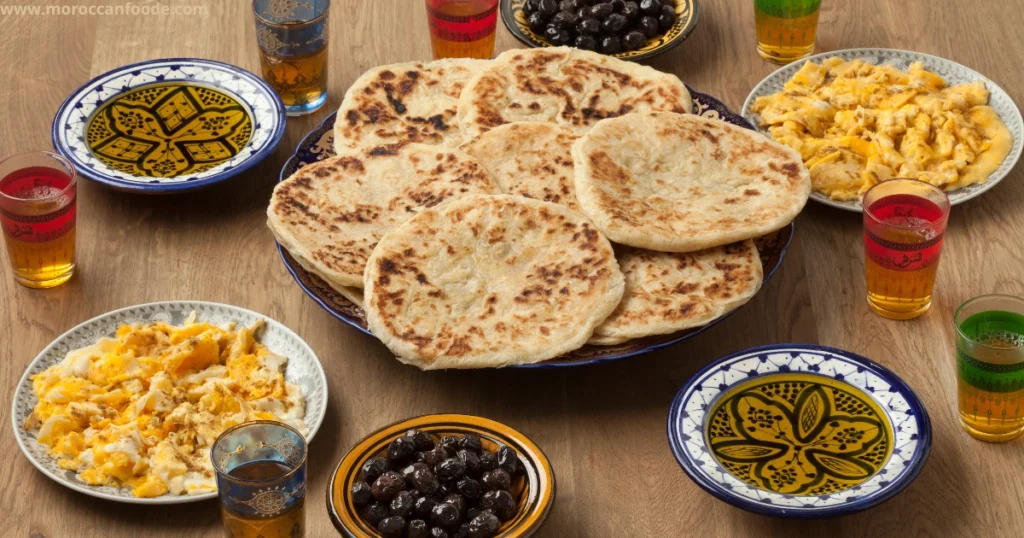
Try adding these healthy breakfast recipes to your daily routine. Experience the health benefits of a traditional Moroccan breakfast. Start your day with a delicious and nutritious Moroccan breakfast.
| Food Item | Health Benefit |
|---|---|
| Whole wheat baghrir | Rich in complex carbohydrates |
| Fresh fish | Rich in omega-3 fatty acids |
| Lean proteins | Helps manage weight and reduce risk of chronic diseases |
Modern Interpretations of Moroccan Breakfast Dishes
Exploring north african breakfast reveals a variety of dishes. These mix traditional tastes with new twists. Modern recipes often add ingredients like avocado and smoked salmon to old favorites.
Today’s Moroccan breakfasts include vegan and gluten-free options. For example, Vegan Butternut Squash & Sweet Potato Tagine and Gluten-Free Harissa Vegetarian Moroccan Lentil Stew are popular. These dishes meet different dietary needs and show how versatile Moroccan cuisine can be.
Here are some key features of modern Moroccan breakfast dishes:
- Fusion of traditional and contemporary ingredients
- Catering to different dietary needs, such as vegan and gluten-free
- Use of exotic spices and flavors, such as harissa and preserved lemons
North African breakfasts are gaining popularity worldwide. Whether you want to try something new or stick to classic tastes, there’s a Moroccan breakfast for you.
| Dish | Ingredients | Description |
|---|---|---|
| Vegan Butternut Squash & Sweet Potato Tagine | Butternut squash, sweet potatoes, chickpeas, preserved lemons | A hearty, vegan tagine made with roasted butternut squash and sweet potatoes |
| Gluten-Free Harissa Vegetarian Moroccan Lentil Stew | Red lentils, harissa, preserved lemons, olive oil | A flavorful, gluten-free stew made with red lentils and harissa |
How to Create Your Own Authentic Moroccan Breakfast Experience
To make a real moroccan breakfast, focus on the details. This includes the ingredients, cooking methods, and how you set the table. A traditional moroccan breakfast has many dishes like shakshuka, msemen, and khobz. These are key parts of traditional moroccan cuisine.
Moroccan breakfasts offer many choices, from sweet pastries to savory dishes. Start by getting the right ingredients, like olive oil, spices, and fresh veggies. You can find these at Middle Eastern or African markets, or online.
Here are some tips for a real Moroccan breakfast:
- Use traditional ingredients, such as preserved lemons and olives, to add flavor to your dishes.
- Focus on presentation, using colorful tiles, patterns, and fresh flowers to make your space welcoming.
- Feel free to try new breakfast ideas and ingredients, like rose harissa pesto or cannellini beans, to make your dishes unique.
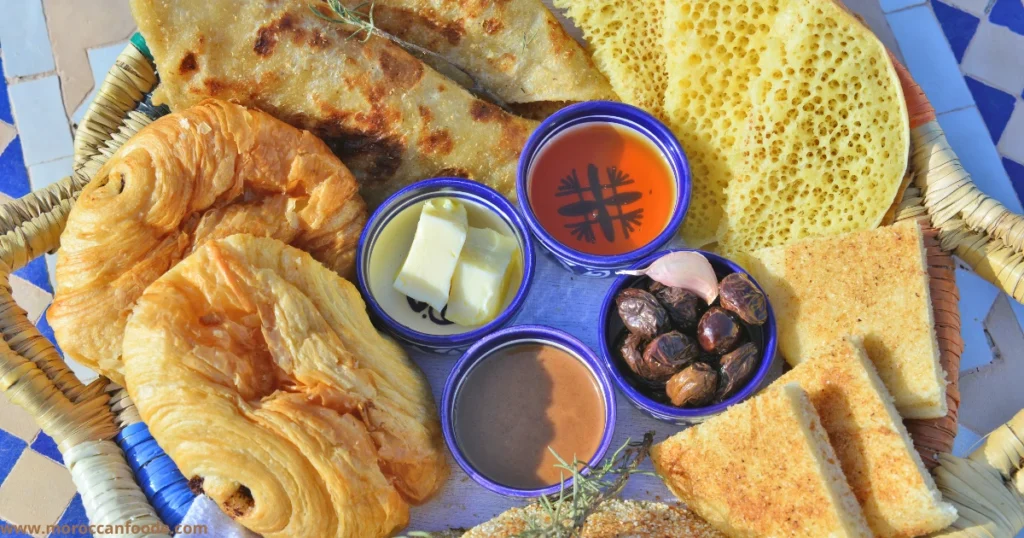
By using these tips and adding the flavors and ingredients of traditional moroccan cuisine to your moroccan breakfast, you’ll create a delicious and authentic meal. It will feel like you’re in Morocco’s lively streets.
| Ingredient | Quantity | Preparation Time |
|---|---|---|
| Olive Oil | 1/4 cup | 5 minutes |
| Spices | 1 teaspoon | 2 minutes |
| Fresh Vegetables | 1 cup | 10 minutes |
Conclusion: Embracing the Magic of Moroccan Morning Cuisine
Our journey through traditional Moroccan breakfast shows the country’s rich culture and culinary creativity. The flaky khobz bread and the airy beghrir pancakes make breakfast a sensory delight.
If you love food, travel, or just enjoy great meals, try Moroccan breakfast. It’s all about fresh, local ingredients and old cooking ways. A traditional Moroccan breakfast feeds your body and celebrates Moroccan food culture.
Now, you know more about Moroccan breakfast and its flavors. Let this guide you to make your own authentic Moroccan breakfast at home. Enjoy the smells, feel the textures, and dive into the cultural depth of Moroccan cuisine.
FAQ
What are the key ingredients in a traditional Moroccan breakfast?
A Moroccan breakfast highlights the country’s rich flavors. It features fresh veggies, meats, and spices. Aromas from cumin and paprika mix with sweet notes from tomatoes and onions.
What are some classic Moroccan breakfast staples?
Classic dishes include khobz bread, beghrir pancakes, and msemen flatbread. Mint tea is a must, bringing everyone together.
What are the sweet components of a traditional Moroccan breakfast?
Sweet treats are a big part of Moroccan breakfasts. From southern pastries to northern honey cakes, they’re all made with love. Honey, sugar, and orange blossom water are common sweeteners.
What are the savory elements that define the Moroccan morning table?
Savory dishes like spicy eggs and creamy dips are key. Fresh and preserved foods add to the mix. Spices like cumin, paprika, and coriander are essential.
What are the health benefits of a traditional Moroccan breakfast?
A Moroccan breakfast is tasty and healthy. It focuses on fresh veggies, whole grains, and healthy fats. Olive oil, honey, and argan oil are used to promote well-being.
How can I create an authentic Moroccan breakfast experience at home?
To make a Moroccan breakfast at home, you need the right tools and ingredients. A shopping guide and attention to presentation are also important. This will create a warm and inviting atmosphere.
